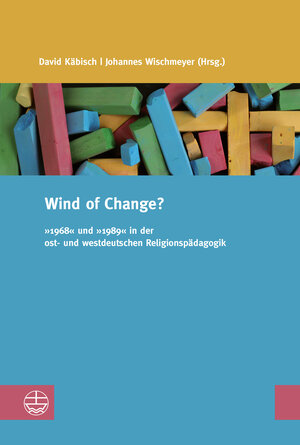
×
![Buchcover ISBN 9783374064434]()
Wind of Change?
»1968« und »1989« in der ost- und westdeutschen Religionspädagogik
herausgegeben von David Käbisch und Johannes Wischmeyer»1968« und »1989« – wie in einem Brennglas bündeln diese beiden Daten den gesellschaftlichen Wandel. Dies gilt nicht zuletzt für die Rahmenbedingungen und Inhalte religiöser Erziehung und Sozialisation. Religionspädagogik und kirchliche Bildungspolitik haben sich im Gefolge von »’68« und »’89« massiv verändert. Emanzipation, Politisierung und ein Mehr an gesellschaftlicher Verantwortung prägten Diskurse und Praxen religiöser Bildung. Die Beiträge des Tagungsbands zeigen dabei eine bemerkenswerte Ähnlichkeit der Leitideen und Ziele in den jeweiligen Umbruchskontexten. Durch die übergreifende Betrachtung des Umbruchsgeschehens zwischen 1968 und 1989 wirft der Band neue Schlaglichter auf die Verflechtungen ost- und westdeutscher sowie evangelischer und katholischer Religionspädagogik in der Reformära.
[Wind of change? »1968« and »1989« in East and West German Religious Education] »1968« and »1989« – social change is bundled in these dates like in a magnifying glass. In an exemplary way, the framework as well as subject matters of religious education and educational policies of the church underwent massive changes in the wake of »’68« and »’89«. Emancipation, politicization and the stressing of social responsibility were shaping discoursed and practice of religious education. A close look on the agendas of both historical focal points reveals significant parallels. The contributions to this volume are highlighting the close links and entwinements between players in East and West Germany as well as between Protestants and Catholics bound together by the aim of religious education reform.
[Wind of change? »1968« and »1989« in East and West German Religious Education] »1968« and »1989« – social change is bundled in these dates like in a magnifying glass. In an exemplary way, the framework as well as subject matters of religious education and educational policies of the church underwent massive changes in the wake of »’68« and »’89«. Emancipation, politicization and the stressing of social responsibility were shaping discoursed and practice of religious education. A close look on the agendas of both historical focal points reveals significant parallels. The contributions to this volume are highlighting the close links and entwinements between players in East and West Germany as well as between Protestants and Catholics bound together by the aim of religious education reform.



